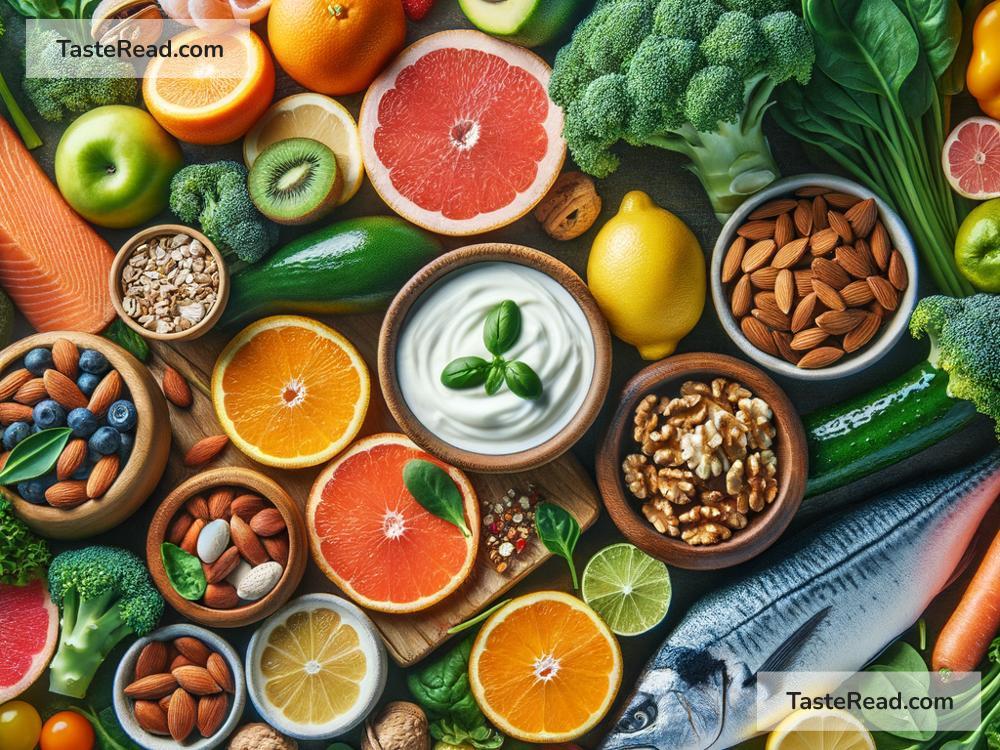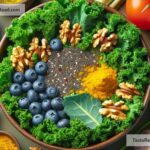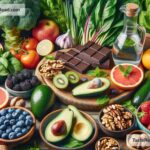Foods That Can Help Boost Your Vaccine Efficacy
Vaccines are an incredible discovery that protect us from serious diseases, but did you know that what you eat could help your body respond better to vaccines? Nutrition plays a big role in building a strong immune system, and a healthy immune system is key to making vaccines work better. In this article, we’ll explore some foods that can improve vaccine efficacy and why they’re important.
How Nutrition Helps Your Immune System
When you get vaccinated, your body creates defenses, called antibodies, to protect you against harmful germs. To do this, your immune system needs a variety of nutrients to fuel its response. If your body lacks those nutrients, your immune system may not function properly, and the vaccine might not be as effective. Eating the right foods can give your body the energy, vitamins, and minerals it needs.
Foods That Strengthen Your Immune System
Let’s dive into some specific foods that help support a strong immune system and improve vaccine efficacy:
1. Fruits and Vegetables:
Fruits and vegetables are packed with vitamins, minerals, and antioxidants that help your immune system stay strong. Vitamin C, found in oranges, strawberries, and bell peppers, is one of the most important nutrients for immunity. It helps your body’s white blood cells work more effectively. Leafy greens like spinach and kale are rich in Vitamin A, which supports healthy skin and tissues that act as your body’s first line of defense.
2. Protein-Rich Foods:
Protein is essential for building immune cells and antibodies. Chicken, fish, eggs, beans, nuts, tofu, and lentils are all excellent sources of protein. Aim to include lean protein in your meals to give your immune system the materials it needs to respond to vaccines effectively.
3. Healthy Fats:
Healthy fats, like omega-3 fatty acids, reduce inflammation and keep your immune system balanced. Foods like salmon, walnuts, flaxseeds, and avocado are great sources of these fats. You don’t need a lot, but small amounts daily can make a difference.
4. Probiotic Foods:
Your gut plays a huge role in your immune system. Probiotic foods, like yogurt, kefir, kimchi, and sauerkraut, promote healthy gut bacteria. A balanced gut can improve your body’s ability to respond to vaccines and fight infections.
5. Foods Rich in Zinc:
Zinc is a mineral that helps repair tissues and supports the production of immune cells. You can get zinc from foods like meat, shellfish, seeds, nuts, and whole grains. Even pumpkin seeds, a tiny snack, are loaded with zinc!
6. Vitamin D Sources:
Vitamin D is crucial for regulating your immune system, and it has been shown to improve vaccine responses. Foods such as fatty fish (like salmon), egg yolks, and fortified foods like milk or cereal can increase your Vitamin D levels. Sunlight is also a natural source of Vitamin D, but if it’s cold or cloudy, your diet can help make up for it.
7. Herbs and Spices:
Turmeric and ginger have anti-inflammatory properties that can support your immune system. Garlic is another powerful ingredient that can boost white blood cell activity. These flavorful additions can be used in cooking to make meals healthier and tastier.
What to Avoid
While eating the right foods helps, eating lots of unhealthy food can harm your immune system. Processed foods, sugary snacks, and fried dishes can cause inflammation in the body, making it harder to fight illnesses. Alcohol should also be consumed in moderation, as it can weaken your immune response.
Timing Matters: Eat Well Before and After Vaccination
The effect of good nutrition isn’t immediate—it builds over time. This means it’s important to start eating healthy foods well before your vaccine appointment. After getting vaccinated, continue eating a balanced diet to help your body build strong antibodies.
It’s also important to stay hydrated. Drinking plenty of water helps flush out toxins and keeps your body functioning properly. After vaccination, hydration can also help reduce side effects like fatigue or headaches.
Lifestyle Factors That Complement Nutrition
While food is a major part of improving vaccine efficacy, don’t forget about other healthy habits. Regular exercise boosts your immune system, reduces stress, and improves sleep quality—all of which make vaccines more effective. Speaking of sleep, getting enough rest allows your body to recover and strengthen its defenses.
If you smoke, reducing or quitting smoking is another way to improve your immune health. Smoking can impair your body’s ability to respond to vaccines, so cutting back can make a difference.
Conclusion: Small Changes Can Make a Big Impact
Improving vaccine efficacy doesn’t require complicated diets or extreme changes—it’s about making small, consistent improvements to your eating habits and overall lifestyle. By including immune-boosting foods like fruits, vegetables, lean protein, healthy fats, and probiotics, you give your body a better chance to respond well to vaccines.
Remember, eating healthy isn’t just about vaccines—it’s about keeping your entire body strong. Start today by adding some of these foods to your meals, and enjoy the benefits of a healthier immune system. Your body will thank you!


